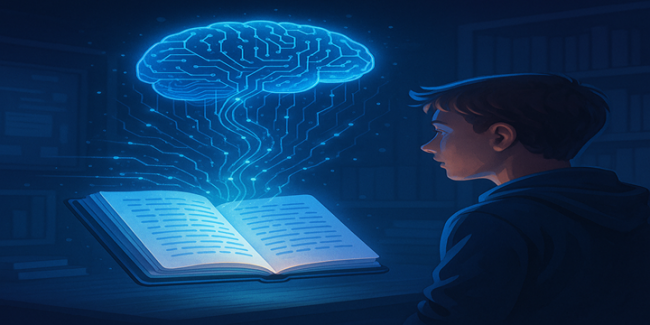Software
5 min read
TurboLearn AI: When Your Study Notes Start Thinking For You


We’ve all been there—hours of lecture recordings, piles of PDFs, and a half-empty notebook filled with good intentions. Whether you’re a student trying to keep up with coursework, a professional preparing for a certification, or someone who just wants to study smarter, TurboLearn AI promises to help you get there—faster, and with less chaos.
Let’s unpack what makes TurboLearn AI stand out in a sea of “study smarter” apps.
Unlike typical AI study tools that just repackage content, TurboLearn AI actually claims to understand your material. It reads your notes, listens to your audio lectures, and helps you revise through interactive flashcards, summaries, and a chat feature—all customized to your inputs.
_1748520409.png)
What sets it apart is its end-to-end learning pipeline: you feed it raw learning material (text, audio, PDFs), and it transforms it into digestible, interactive study content within seconds. Think of it as a one-stop shop for modern, adaptive self-learning.
But how exactly does it work in practice? Let’s take a look at its core features.
As per its users, TurboLearn converts long PDF files, copied text, and even recorded lectures into structured notes—with headings, key points, and even emojis, tables, or equations where needed. This isn’t just summarizing; it’s intelligent formatting based on what matters most in your content.
_1748520444.png)
Once you’ve got your notes in place, it doesn’t stop there. The tool builds on that content to help you actively memorize.
From every topic it digests, TurboLearn can instantly generate flashcards and quizzes. This helps reinforce key points through active recall, one of the most powerful study techniques.
Users have noted how this makes even heavy subjects like medicine or law more manageable and interactive.
But perhaps the most futuristic feature is its ability to talk to your notes.
This is where TurboLearn really shines. Instead of just reading your notes, you can chat with them.
Example: Upload a chapter on cell biology. Then ask, “What are the stages of mitosis?”—and it replies based on your content, not pre-trained generic answers.
This tailored experience removes the need to manually scan through dozens of paragraphs just to find one definition.
With all of this content in motion, managing access across your devices becomes critical—which TurboLearn handles well.
TurboLearn works on iOS and Android and supports seamless syncing across devices. Whether you're switching from tablet to phone or revising on your laptop, your materials are always up-to-date and accessible.
But smart tools also need to be secure. What does TurboLearn do with your data?
TurboLearn’s Google Play Data Safety disclosure confirms that while the app does collect basic information like email and device ID, it does not share this data with third parties. It also allows users to request data deletion and uses encryption to keep content secure.
But do the benefits justify the cost? Let’s hear from real users.
Most users highlight how TurboLearn helps them condense dense materials quickly and makes revision feel less painful. It has a rating of 4.5 on playstore from 50.7k reviews.
One user on Reddit said:
“I use it only for making notes from lectures, and it does the trick very well.”
But like any tool, it’s not flawless.

So, where does TurboLearn actually work best—and when should you look elsewhere?
Best for:
Less effective for:
For those tackling math-heavy subjects, you might want to pair TurboLearn with tools specifically designed for equations and problem-solving. For example, this AI Math Solver offers an intelligent way to approach complex math problems with clarity—making it a great companion to TurboLearn for a complete academic toolkit.
If you’re the kind of learner who struggles with managing time, organizing study material, or turning passive reading into active learning—TurboLearn can be a real change.
It’s not meant to replace your thinking. It’s meant to remove the friction between you and better learning.
With intelligent note-making, interactive study tools, and a responsive chatbot, it bridges the gap between raw content and real understanding.
1. Can it read handwritten notes or scanned PDFs?
No, it works best with typed text or audio files. Handwritten input isn’t supported yet.
2. Is it good for Physics, Chemistry, or Math?
It’s helpful for theory but not ideal for complex equations or symbolic logic.
3. Is there a desktop or web version?
No, TurboLearn is only available on Android and iOS.
4. Can I export flashcards to Anki or Notion?
Not directly. You’ll need to copy and paste manually.
5. Is my data safe?
Yes, data is encrypted and not shared with third parties.
6. Can it summarize YouTube videos?
Only if you upload the audio; direct YouTube links aren’t supported.
7. How is it different from ChatGPT or Notion AI?
TurboLearn is built specifically for study workflows like flashcards and notes, not general AI chat.
Be the first to post comment!